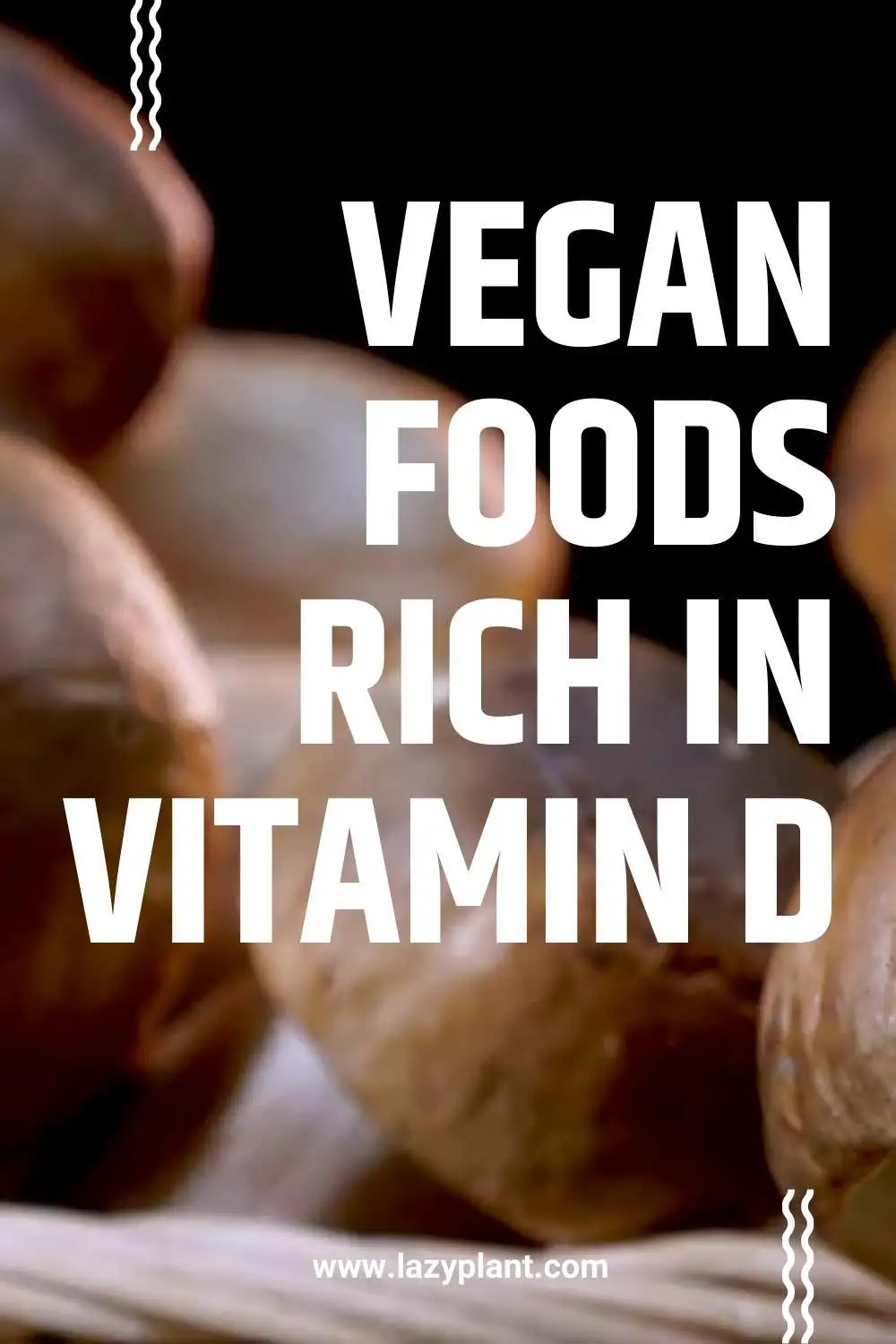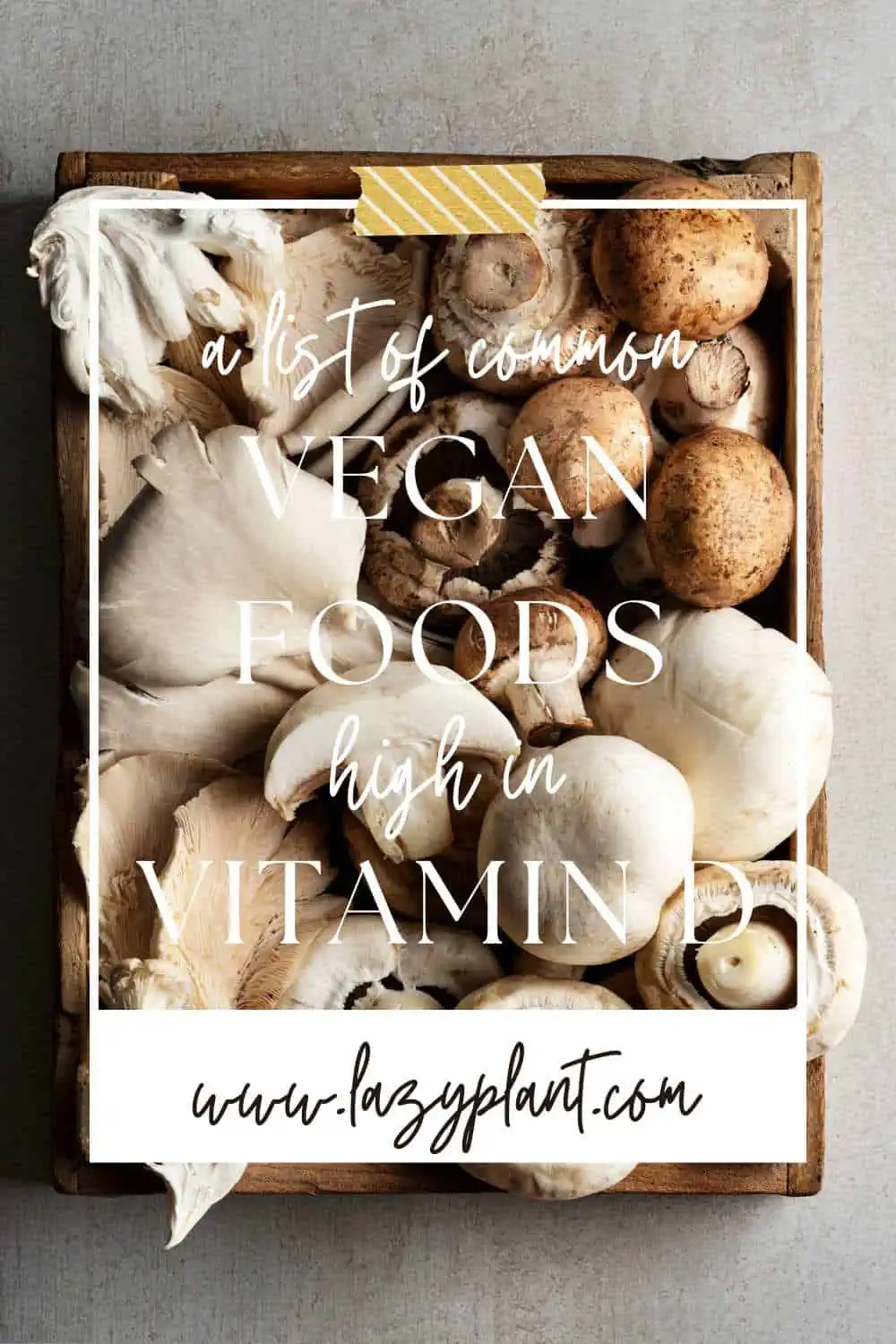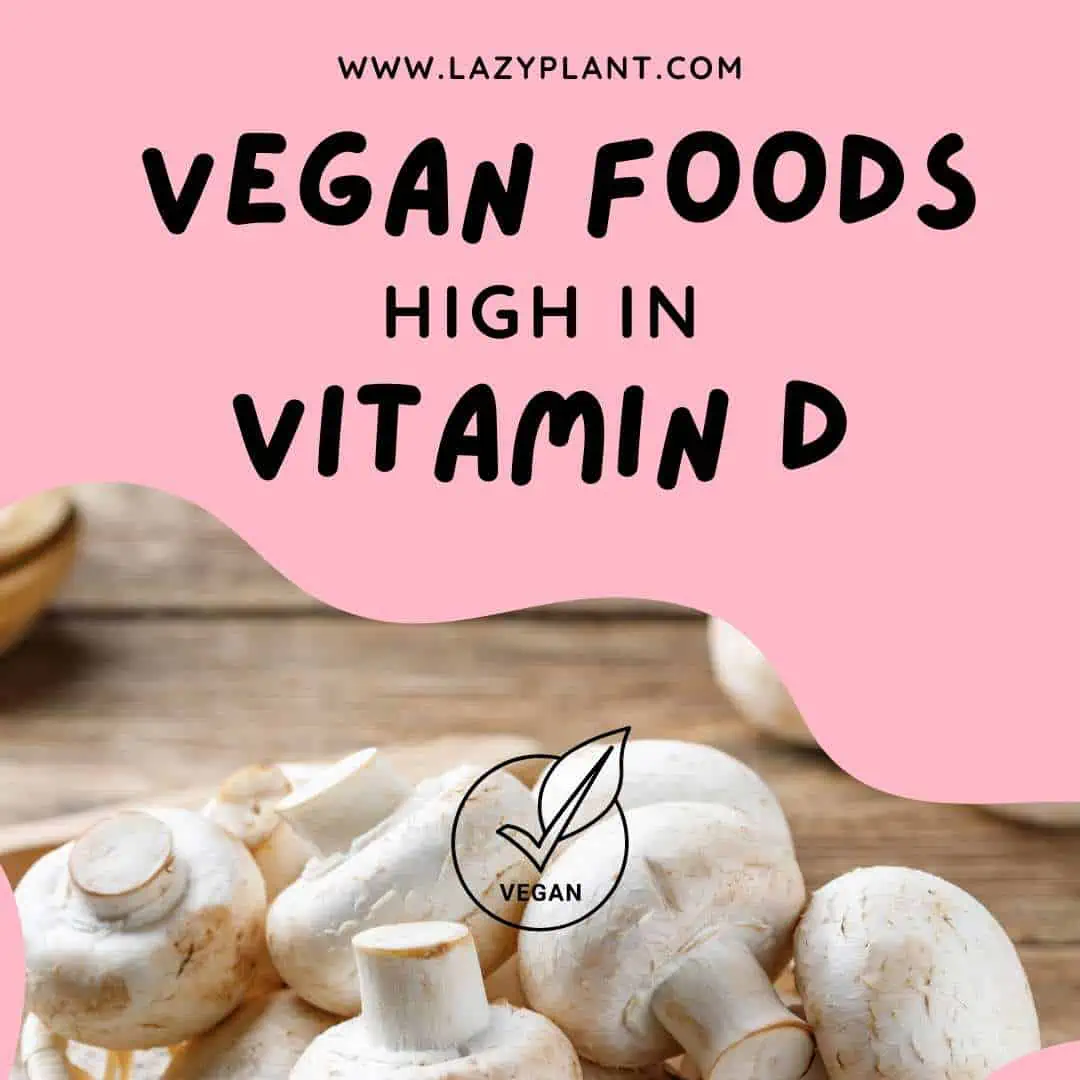The best vegan sources of vitamin D are dietary supplements, fortified vegan foods, and certain mushrooms. Vegans can get high doses of vitamin D from sunlight exposure as well. But, it’s dangerous for health.
How much vitamin D do we need daily?
Most healthy adults need approximately 15 mcg or 600 IU of vitamin D per day. Elderly people need about 20 mcg of vitamin D per day.[1]
Vitamin D is so important for the human body. For instance, it plays a key role in testosterone synthesis, skin health, cell growth, neuromuscular function, immune function, and reduction of inflammation. Most noteworthy, vitamin D has been linked to the prevention of:
- bone and tooth loss. Vitamin D promotes calcium absorption. Also, it regulates calcium and phosphate in the blood. They are vital for normal bone growth.
- osteoporosis. Vitamin D along with high doses of vitamin K2 may protect elderly people from osteoporosis.
- cancer. Vitamin D may decrease the risk for certain cancers, such as colon, prostate, and breast cancer.
Moreover, according to studies, vitamin D may play some role in the prevention and treatment of type 1 and type 2 diabetes, hypertension, obesity, constipation, glucose intolerance, multiple sclerosis, and depression.

Are animal sources rich in vitamin D?
Even meat-eaters and vegetarians can’t get adequate amounts of vitamin D from food. Only a few foods are good dietary sources of vitamin D.
Fatty fish are the best dietary sources of vitamin D. Beef liver, cheese, and egg yolks provide only small amounts of vitamin D.
| Vitamin D (mcg) per 100g | Vitamin D (IU) per 100g | % DV | |
| cod liver oil | 250 | 10,000 | 1,667 |
| salmon, dried | 34,1 | 1,364 | 227 |
| trout, smoked | 28,3 | 1,132 | 189 |
| trout, fresh | 15,9 | 636 | 106 |
| mackerel | 13,8 | 552 | 92 |
| tuna, smoked | 11,3 | 452 | 75 |
| mackerel, smoked | 11,3 | 452 | 75 |
| salmon, fresh | 10,9 | 436 | 73 |
| egg yolks | 5,4 | 216 | 36 |
| tuna, dried | 5,3 | 212 | 35 |
| sardines | 4,8 | 192 | 32 |
| tuna | 1,7 | 68 | 11 |
| beef liver | 1,2 | 48 | 8 |
| cod, smoked | 0,8 | 32 | 5 |
| cheddar cheese | 0,6 | 24 | 4 |
| goat cheese | 0,5 | 20 | 3 |
| feta cheese | 0,4 | 16 | 3 |
Why shouldn’t we depend on animal foods for vitamin D?
Meet, and dairy aren’t good sources of vitamin D. Actually, only certain parts of animals contain some amounts of vitamin D. In fact, animals may contain vitamin D, as farmers give them vitamin D supplements.[2]
An egg yolk contains about 0.9 mcg of vitamin D. That’s 6% DV. But, when you eat an egg yolk, you also consume 184 mg of cholesterol, and 1.6 grams of saturated fat. Increased saturated fat intake has been linked to increased risk of heart disease and stroke. Therefore, the American Heart Association recommends consuming no more than 13 grams of saturated fat per day.[3]
Moreover, fish doesn’t synthesize vitamin D. It gets vitamin D from plankton, which contains vitamin D. Farmed fish is fed formulated diets that contain vitamin D. Fish stores vitamin D in the liver and fat tissue.[4]
However, according to a research, fish may contain less vitamin D than the amount in food charts. Vitamin D concentrations of fish depend on its diet. Therefore, you can’t be sure about the consumed vitamin D dose.[5]
Vegan sources of vitamin D
Actually, vegan food is a poor dietary source of vitamin D. Only certain mushrooms contain some vitamin D.

Maitake, chanterelle, and morel are the only mushroom varieties that are high in vitamin D. Moreover, some producers expose mushrooms to ultraviolet light to make them produce more vitamin D.[6]
| Vitamin D (mcg) per 100g | Vitamin D (IU) per 100g | % DV (Daily Value) | |
| maitake | 28,1 | 1123 | 187,2 |
| chanterelle | 5,3 | 212 | 35,3 |
| morel | 5,1 | 206 | 34,3 |
| oyster | 0,7 | 29 | 4,8 |
| shiitake | 0,4 | 18 | 3,0 |
| portabella | 0,3 | 10 | 1,7 |
| white | 0,2 | 7 | 1,2 |
| enoki | 0,1 | 5 | 0,8 |
| crimini | 0,1 | 3 | 0,5 |
Certainly, the most common vegan sources of vitamin D are fortified products. Nowadays, many vegan foods are fortified with vitamin D. For instance, you can find many fortified foods, such as tofu, orange juice, or any plant-based milk. Fortified foods can help vegans meet the daily needs of vitamin D.
Can vegans get enough vitamin D from the sun?
The human body synthesizes vitamin D when the skin is exposed to the sunlight. For many people, sunlight exposure is the major source of vitamin D.
The human body stores vitamin D in the liver and the fat tissue. People who are exposed to the sunlight during the summer, fall, and spring may store adequate amounts of vitamin D for the winter. Research has shown that even people who live in areas with limited sun exposure can synthesize high doses of vitamin D from the sun.
Moreover, there isn’t such thing as excessive sun exposure. We can’t get too much vitamin D from sunlight. The heat on the skin inhibits the formation of excess vitamin D.
What’s the ideal sunlight exposure for vegans to synthesize vitamin D?
There isn’t a recommended daily sunlight exposure, as vitamin D synthesis depends on many factors, such as season, time of the day, length of the day, cloud cover, pollution, skin melanin content, and use of sunscreen.
All these factors affect UV radiation exposure. For instance, on a cloudy day, the energy of radiation is reduced by 50%. Shade or air pollution may reduce it up to 60%. Moreover, UVB radiation doesn’t penetrate glass.
As a rule of thumb, 30 minutes of sun exposure on a sunny day are considered more than enough for vegans (and meat-eaters) for synthesizing adequate amounts of vitamin D.

But, sun exposure shouldn’t be the main source of vitamin D for vegans. Every year, there are approximately 1.5 million skin cancers due to UV radiation! UV radiation is a carcinogen.
In order to protect your skin from photoaging, you should get high doses of vitamin E and vitamin C from food. These vitamins may help fight tissue inflammation, free radicals, photoaging, promote tissue healing, and stimulate collagen synthesis. Moreover, vitamin C may help inhibit the invasion and metastasis of melanoma.[7,8]
Should vegans take vitamin D supplements?
Vitamin D supplementation is considered pretty safe. Vitamin D toxicity is rather unlikely, if you don’t exceed the maximum safe dose of vitamin D.
In any case, you should consult your healthcare provider before taking vitamin D supplements.
Vegans should take vitamin D supplements with food. Fat, in particular. A 2015 study showed that people who consumed dietary fat with vitamin D supplementation increased its absorption by 32%. The best dietary sources of fat are seeds and nuts.[9]
You’ll find a wide variety of vitamin D supplements on iHerb.